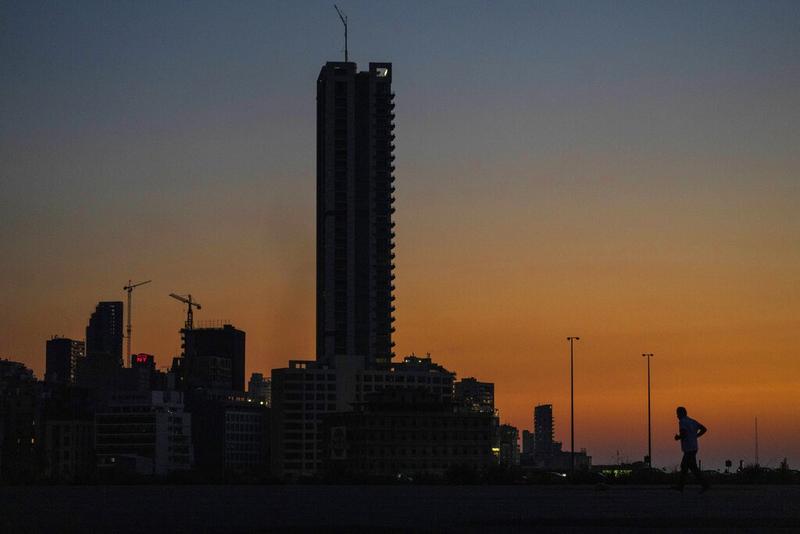 A man jogs along the seaside promenade as the capital city of Beirut remains in darkness during a power outage, Lebanon on Aug 19, 2021. Lebanon, which is mired in multiple crises including a devastating economic crisis, has faced months of severe fuel shortages that have prompted long lines at gas stations and plunged the small country, dependent on private generators for power, into long hours of darkness. (HASSAN AMMAR / AP)
A man jogs along the seaside promenade as the capital city of Beirut remains in darkness during a power outage, Lebanon on Aug 19, 2021. Lebanon, which is mired in multiple crises including a devastating economic crisis, has faced months of severe fuel shortages that have prompted long lines at gas stations and plunged the small country, dependent on private generators for power, into long hours of darkness. (HASSAN AMMAR / AP)
DUBAI - Iran said on Monday it is ready to ship more fuel to Lebanon if needed, a day after the leader of Lebanon's Iran-aligned Hezbollah group said more vessels carrying Iranian fuel would sail soon to help ease the country's fuel shortage.
"We sell our oil and its products based on our own decisions and the needs of our friend. Iran is ready to send fuel again to Lebanon if needed," Iran's Foreign Ministry spokesperson Saeed Khatibzadeh said in an online weekly news conference.
We announce our readiness to sell fuel to the Lebanese government in addition to the fuel purchased by the Lebanese Shi'ite businessmen, if the Lebanese government is willing.
Saeed Khatibzadeh, Iran's Foreign Ministry spokesperson
"Certainly we cannot see the suffering of the Lebanese people."
On Sunday Hezbollah's Hassan Nasrallah said the first vessel shipping Iranian fuel to Lebanon, which last Thursday the group announced was about to leave Iran, had already sailed.
ALSO READ: Hezbollah-organized fuel for Lebanon to set sail, group says
Last week Iran's semi-official Nournews news website reported that the fuel shipments to Lebanon were all purchased by a group of Lebanese Shi'ite businessmen.
"We announce our readiness to sell fuel to the Lebanese government in addition to the fuel purchased by the Lebanese Shi'ite businessmen, if the Lebanese government is willing," said Khatibzadeh.
Hezbollah's foes in Lebanon have warned of dire consequences from the purchase, saying it risked sanctions being imposed on a country whose economy has been in meltdown for nearly two years.
US sanctions on Iran's oil exports, reimposed in 2018 when then-president Donald Trump exited Tehran's 2015 nuclear deal with six powers, aim to cut its crude sales to zero.
READ MORE: Lebanon's Hezbollah says it will begin importing fuel from Iran
Hezbollah, founded by Iran's Revolutionary Guards in 1982, has also been targeted by US sanctions.


